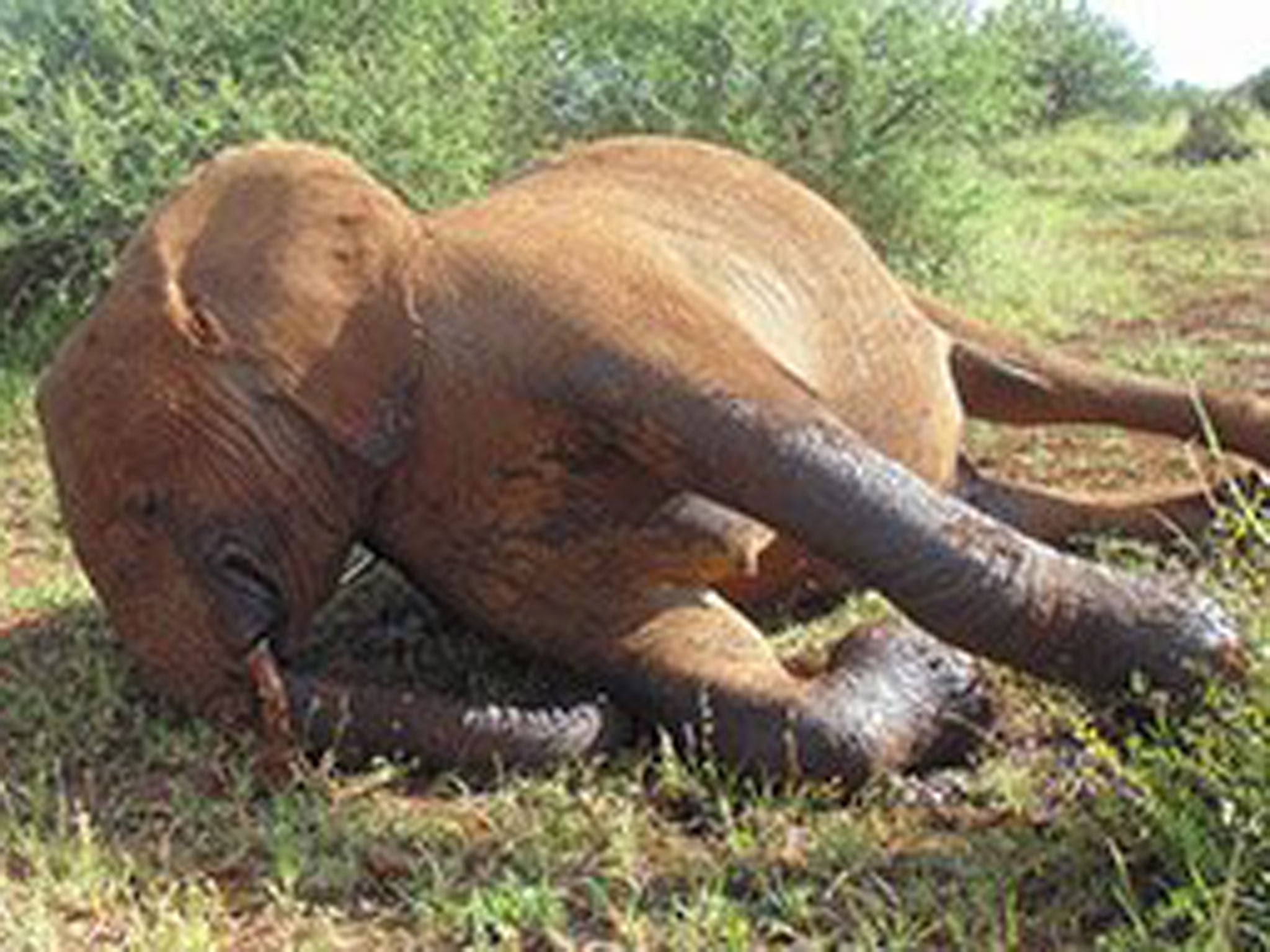Pregnant elephant speared to death by poachers in Kenya
The International Fund for Animal Welfare released the image to highlight the continuing horrors of the illegal ivory trade

Your support helps us to tell the story
From reproductive rights to climate change to Big Tech, The Independent is on the ground when the story is developing. Whether it's investigating the financials of Elon Musk's pro-Trump PAC or producing our latest documentary, 'The A Word', which shines a light on the American women fighting for reproductive rights, we know how important it is to parse out the facts from the messaging.
At such a critical moment in US history, we need reporters on the ground. Your donation allows us to keep sending journalists to speak to both sides of the story.
The Independent is trusted by Americans across the entire political spectrum. And unlike many other quality news outlets, we choose not to lock Americans out of our reporting and analysis with paywalls. We believe quality journalism should be available to everyone, paid for by those who can afford it.
Your support makes all the difference.They are creatures of magnificent beauty, with the intelligence to match, and yet day after day they are hunted mercilessly for their ivory tusks.
Lest one could forget the full horrors of the illegal poaching trade, this shocking image of a murdered pregnant elephant brings its extreme brutality to the fore.
Seen sprawled on her side, the expectant animal was speared to death on Thursday in Amboseli, Kenya.
The International Fund for Animal Welfare (IFAW) released the picture of the incident, which took place around 3pm in the Olitani area, to remind people that the battle against poaching is far from over.
IFAW’s Regional Director for East Africa, James Isiche, said: “This is a double tragedy. The callous poachers did not care that the elephant was pregnant. Their actions were driven by greed to make quick money.
“IFAW joins other organizations in calling for the President to declare poaching of elephants and rhinos a national disaster. The government should spare no efforts in stopping the poaching menace that is threatening to decimate Kenya’s national heritage.”
No arrests have yet been made, but swift action by community scouts within the Amboseli Tsavo Games Scouts Association (ATGSA) ensured that the ivory was secured.
Tens of thousands of elephants are killed every year to supply illegal ivory to markets throughout the world.
The animals often die a slow and brutal death, with their tusks sometimes hacked off while they are still alive.
In Kenya’s worst poaching incident last year, 11 elephants were killed by a gang of Somali poachers in Tsavo East national park.
Dame Daphne Sheldrick, a Kenyan conservationist who set up the David Sheldrick Wildlife Trust in memory of her late husband, said: “Poaching is out of control. The price ivory fetches today is higher than ever before, the temptations more than ever, and of course the demand from the Far East and particularly China also more than ever before.”
Last month, delegates from about 50 countries came together at a major international conference in London to try and halt the illegal wildlife trade.
Chaired by Foreign Secretary William Hague and attended by the Prince of Wales, the Duke of Cambridge and Prince Harry, the conference produced the London Declaration, which outlined a number of commitments aimed at stopping the illegal trade.
In 2013, The Independent ran the Elephant Appeal, which was the most successful appeal in the newspaper’s history, raising more than £500,000 to combat the poaching crisis.
The money helped finance new teams of wildlife rangers and run community education projects, as well as help establish a new 65,000-acre wildlife conservancy in central Kenya.
Subscribe to Independent Premium to bookmark this article
Want to bookmark your favourite articles and stories to read or reference later? Start your Independent Premium subscription today.
Join our commenting forum
Join thought-provoking conversations, follow other Independent readers and see their replies
Comments